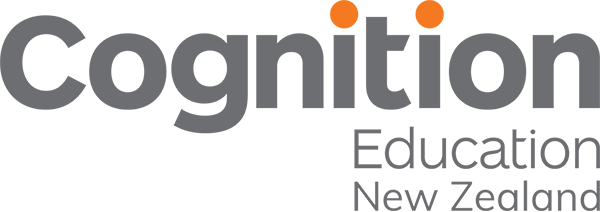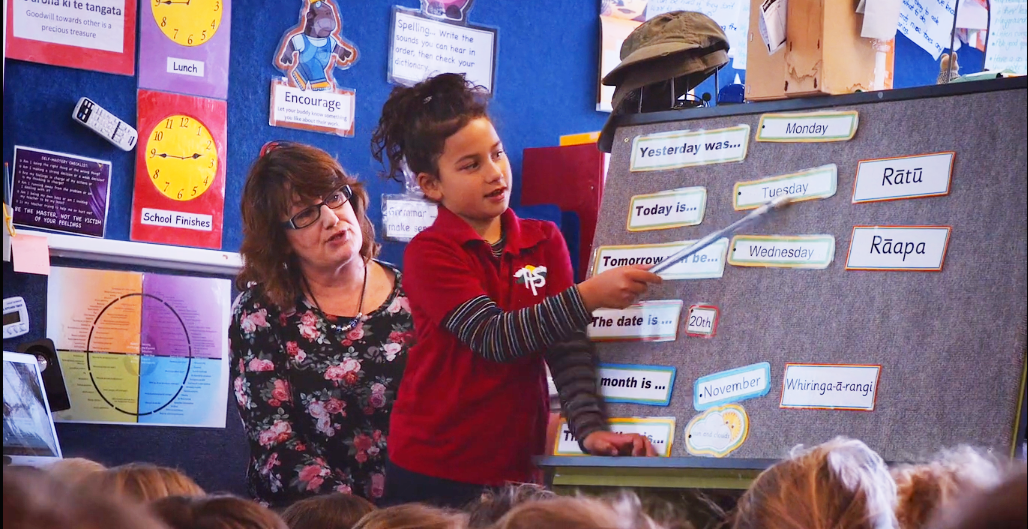Hokitika made headlines in 2017, for more than just the Wild Food Festival; “Hokitika Primary School struggling to improve reading, writing and maths achievements”. With the ERO report showing the school was not making improvements in key areas; the school knew they needed to change what they were doing.
In addition to the challenges with achievement, teachers were struggling under the day to day demands of elevated behaviours, having a high percentage of transient children and the Board had challenges filling teacher and leadership positions.
West Coasters are optimistic, resilient and tenacious folk. While there was hard mahi to do here, the team put their heads down, launched themselves into a spiral of inquiry and found a way forward. That way turned out to be oral language.
THE OBSERVATION
The team had a hunch that the foundation skill of oral language might be an area they could focus on to lift student achievement and to support positive behaviours for their learners.
Hokitika Primary has a diverse roll of around 135 students. 35 of the children identify as Maori, and 14 children identify as English language learners from 10 different cultural backgrounds. Teachers noticed that many children were arriving at school with a limited vocabulary and limited language structure knowledge. They noticed that they had many learners who had speech that was unclear and sometimes hard to understand. Many of the sounds of their language were not yet well developed. “We were noticing that when some children were frustrated, they tended to lash out physically instead of using words to solve problems and that children often didn’t have the language skills they needed to act and learn independently,” says Brenda Syme, Junior School Leader.
The next step for the school was to apply for Centrally Funded Professional Learning and Development through the Ministry of Education. They received hours and engaged Del Costello, a specialist oral language consultant from Cognition Education. With Del’s support and guidance, they embarked on a school-wide oral language data collection which allowed them to get a better view of the big picture. With all the data on hand, the decision was made to focus the project on the junior school so that learners and teachers could be supported to build these important foundation skills.
THE IMPLEMENTATION
Taking an evidence-based approach, the team co-constructed an effective teacher practise rubric that provided a pathway for teacher’s competency around the oracy strands. The team created a tool kit for action and the revitalised assessment of learner progression begun. Connections and education opportunities were created for whanau and local Early Childhood Centres.
Cognition’s Del Costello says, “Working in the oral language space, I often have to start with a clean slate. Most schools have never effectively assessed oral language and may have only done a few things here and there. I find all teachers instinctively know that oral language is important, but most don’t have a depth of understanding about the pedagogy of oracy. Once we begin, they are keen to learn and embed it into their practice. Supporting teachers to build effective tools to grow and nurture quality classroom discourse is such rewarding work.”
THE IMPACT
“We have seen four key areas of impact,” says Del Costello. Firstly, the school has worked hard to develop a system of integrating oral language across the literacy curriculum and the next steps are to allow this to migrate right across all curriculum areas and the whole school. “We have an oral language champion in the junior school who has taken on the role of leading this work and provides support for all our team,” says Shane Baillie, Principal.
Secondly, there has been an impact through the connections with our wider whanau and community. “The community and whanau now know the importance of quality korero outside the school day and we have given them easy and simple tools to grow this,” says Andrea Peters, Junior teacher and oral language champion.
“The third outcome is that we have been successful in building the value and connections to children’s home language. Being an English Language Learner (ELL) is often viewed as being a disadvantage to a learner, but the research tells us it certainly is not. A key element of this work was to find ways to take advantage of the linguistically diverse learners. It was a turning point for our work together,” says Del Costello.
Finally, there have been big gains in the social-emotional development of the learners too. “Because the children have a voice and the language to express how they feel, as well as having time and space to practice this, we have seen a steady drop off in the behaviour problems – it’s been incredible,” says Shane Baillie.
What about the literacy achievement? Well, it is good news on that front too. The writing scaled scores showed a mean gain between Term 1 and Term 4 for both Year 1 and Year 2 students. This is quite a different trend for Hokitika Primary.
Oral language progress is tracked using an oral language rubric and this showed pleasing progress for all learners.

“We are thrilled that this work is starting to pay dividends for our learners and now that effective oral language pedagogy is imbedded in our practice, it is time to let it grow. Cognition Education has provided us with the evidence base approach, we have the support of our Board, our community and our whanau. We will continue to work together to grow young people who can talk about their learning, talk about their feelings and participate fully in this amazing community in which we live.”
Watch a short video about this project here.

